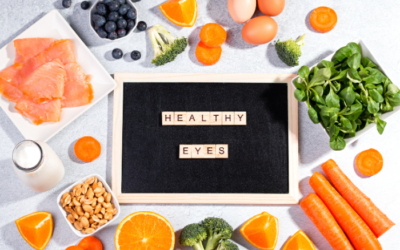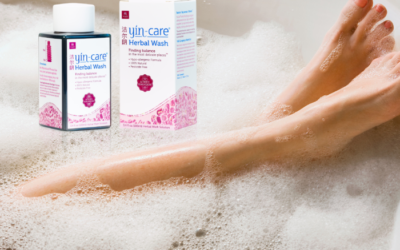Postpartum Health – the “Fourth” Trimester
 Postpartum Body changes
Postpartum Body changes
Your body just made a human being (or more), and it isn’t going to bounce back to your pre-pregnancy state. Some changes will occur over the next few weeks, including:
Breast engorgement – your body will begin to make breastmilk within a couple of days after giving birth. This is normal, but it can cause swelling or engorgement. You can ease any discomfort this causes by applying warm or cold compresses to your breasts.
Sore nipples – this is normal when first breastfeeding and will disappear as your body adapts. You can use nipple cream to soothe any pain or cracked skin.
Constipation is expected in the postpartum period, and this is why eating high-fiber foods and drinking lots of water is essential to support regular bowel activity.
Hormonal sweating – your hormones change after giving birth, and you may have sudden seating, especially at night. Remove blankets and wear loose, comfortable clothing to stay cool.
Vaginal discharge – typically occurs after giving birth for two to six weeks. Your body is ridding itself of the blood and tissue in your uterus. Do not use tampons or douche during this time; instead, wear sanitary napkins as your vagina is still healing.
Uterine pain – after giving birth, your uterus will shrink back to its pre-pregnancy size. However, this can cause painful cramping. Talk to your doctor about safe pain relief methods.
Cesarean – if you had a Cesarean section birth – there will be additional changes your doctor will discuss with you, and it will be essential to keep your incision clean and not irritate it
 Rest after having a baby
Rest after having a baby
Getting rest is crucial during this time. You have a postpartum body to care for as well as a newborn. Newborns wake every two to three hours; they need to be changed, fed, and comforted when they do. You and your partner may be exhausted by this new way of life. However, you need it to care for your baby and yourself. Here are a few ways to find rest:
Ask for help – this is so important; you need to feed and bond with your baby and take care of yourself. That’s it. If you can ask someone to help with everything else or some of it – do it. If you have other children to care for, meals to cook, housecleaning, laundry, etc. – ask someone to help with it.
Sleep – you may find it hard to sleep at all hours of the day but sleep when your baby sleeps. This is the best way to make sure you get the rest your body needs.
Bassinet – in the early weeks, have your baby sleep next to your bed in a bassinet or Moses basket – so you don’t need – this is especially helpful after a c-section birth as it will be harder to get up and down
Prep station – set up whatever you and your baby need by your nightstand or in a cart. That way, you can take care of your baby without having to move around too much
Visiting – everyone wants to see your new baby, but you should allow people to see you when you are feeling up to it – if you need a nap or feel overwhelmed, excuse yourself
Walk – walking after giving birth is an essential postpartum exercise – going outside in fresh air is even better

Postpartum Nutrition
Your body is recovering from pregnancy and birth + if you are breastfeeding, your body needs a healthy diet to stay healthy. To keep up with the needs of your baby and take care of yourself – you need to make sure you are meeting nutritional goals while in postpartum.
- Take a post-natal vitamin to ensure you are getting all the nutrients you need; being a new mom is busywork that can deplete nutrients!
- If breastfeeding – Remember you will need more calories than during the third trimester – about 300 more per day. Eat balanced meals and healthy snacks.
- Lactation experts recommend that you eat when you are hungry because sometimes new moms are too tired and busy to remember to eat.
- Make sure you eat foods from all five food groups – whole grains, vegetables, fruits, protein, and dairy (if vegan, eat calcium-rich foods). Healthy fats such as coconut oil, olive oil, avocado, and fish are also essential.
- Don’t start dieting to lose pregnancy weight until you are healed and get the OK from your doctor.
- Drink lots of fluids – more if breastfeeding.
 Lactation
Lactation
Breastfeeding has been natural and pre-dated bottle feeding for most of human history. While it is recommended as a great source of nutrition for babies, it is also agreed that it is a personal decision and that “fed is best.”
Lactation issues can often come up during a mother’s breastfeeding journey, sometimes once and sometimes periodically. Not producing enough milk can be stressful and cause anxiety for moms.
- Breastfeed or pump frequently; the more often you nurse, the more milk your body will produce.
- Drink water often. Your body cannot make milk if dehydrated.
- Relax and try to reduce stress and anxiety as this can affect your milk supply.
- Stay rested. Sleep when the baby sleeps, this may seem impossible, but a tired body won’t work well. It takes a lot of energy to keep your baby fed.
- Lactation cookies, teas, certain foods, and herbs like fenugreek can help. Check with your local lactation specialist to see which ones would work best for you.
- Create a space for breastfeeding and make sure you have everything you need close by, including snacks, water, nursing pads, and your phone.
- Get help as soon as you can; a nurse in the hospital or a lactation expert can make a difference
- You don’t have to feed on both breasts every time, and you can let your baby breastfeed from the first breast and then switch to the second the next feeding. A helpful tip to remember is to wear a bracelet on the wrist of the side you last fed on. Just remember to switch at the next feeding!
- Try to avoid using pacifiers at first, and they can mess with the rhythm you are trying to achieve, including suppressing hunger cues.
- Change position – some people find laying on their side works, others feel more comfortable sitting up.
Foods that increase lactation
- Oats – helps to relax the body and is iron-rich.
- Garlic – can boost milk production.
- Vegetables like dark leafy greens, sweet potatoes, and carrots can boost lactation.
- Sesame seeds – boost lactation.
- Brewer’s yeast – a good source of energy and signals to your body to make more milk.
- Apricots – Dried apricots can boost breast milk production and are a source of calcium.
- Ways your breast milk production can be affected.
- Mastitis – an infection in your breast tissue that can cause redness, swelling, fever, chills, discharge from the nipple, nausea, vomiting, and pain.
- Low milk production – can be caused by not nursing often enough, some medications, ineffective latch, and certain medical conditions.
- Chapped nipples can make it painful to breastfeed – use purified lanolin or coconut oil to moisturize them.
- Your baby may have a problem latching on due to tongue-tie – ask a lactation specialist.
- Blocked ducts – avoid them by not putting pressure on your breasts – including sleeping on the same side or carrying a diaper bag.
 Baby blues
Baby blues
Often called baby blues, postpartum depression affects 60-80% of all new mothers. Baby blues are feelings of sadness after giving birth and can affect new parents no matter their income, culture, race, age, or education level. Many mothers experience baby blues within 2 to 3 days after having their baby. Most people find these feelings go away within two weeks. However, if they occur for more than two weeks, you should let your health care provider know as this is a more serious condition called postpartum depression.
Hormone changes are the core reason baby blues occur as the estrogen and progesterone in your body suddenly decrease and can cause mood changes. Stress and anxiety about your baby can also contribute to these feelings.
Here are some of the signs that you may have baby blues according to March of Dimes:
- Feel moody, anxious, worried, or cranky
- Feel angry, sad, and cry a lot
- Feel overwhelmed
- Feel lonely
- Have trouble concentrating
- Have trouble sleeping or eating
- Have trouble making decisions
- Loss of appetite.
If you feel like you may hurt yourself or your baby, call 911.
While baby blues go away on their own usually, here are a few ways to help:
- Get enough sleep
- Ask for help
- Take some time for yourself
- Connect with other new parents
- Don’t drink alcohol or take drugs
- Exercise if you can.

Jemile earned a degree in Food Studies and Writing and has worked for almost 23 years in the medical and health industries. She has been a digital marketing consultant for Acupuncture Atlanta since 2011 as the social media manager and content manager. Writing has been a childhood dream for Jemile and writing daily for clients in the health, wellness, food, and art industries have been phenomenal. Jemile is originally from Brooklyn, NY, and lives in the Hudson Valley, NY. She lives with her husband, two daughters, her dog, and two fish. You can contact Jemile via Linkedin, her mom blog, or her website, lunaroseconsulting.com



